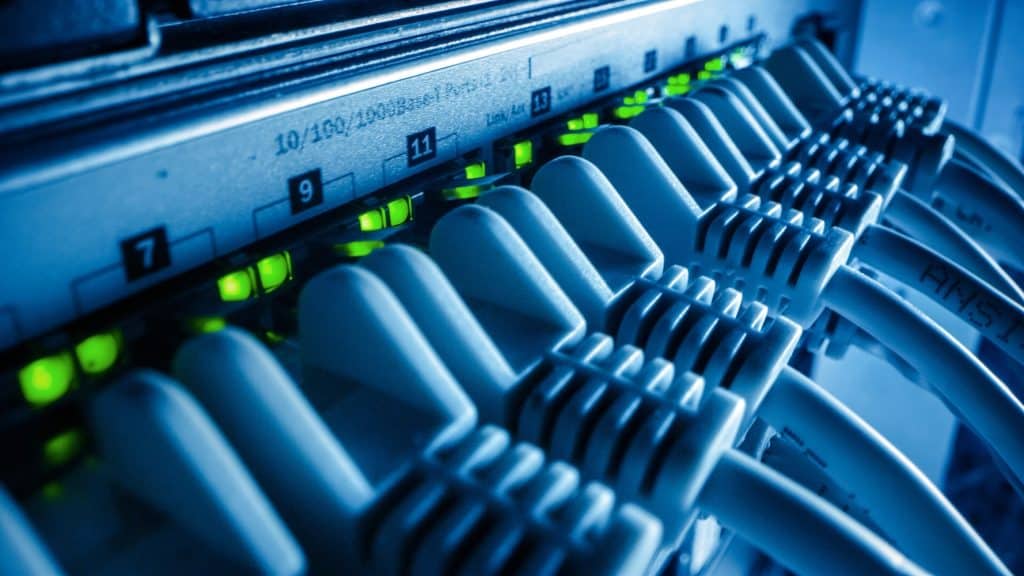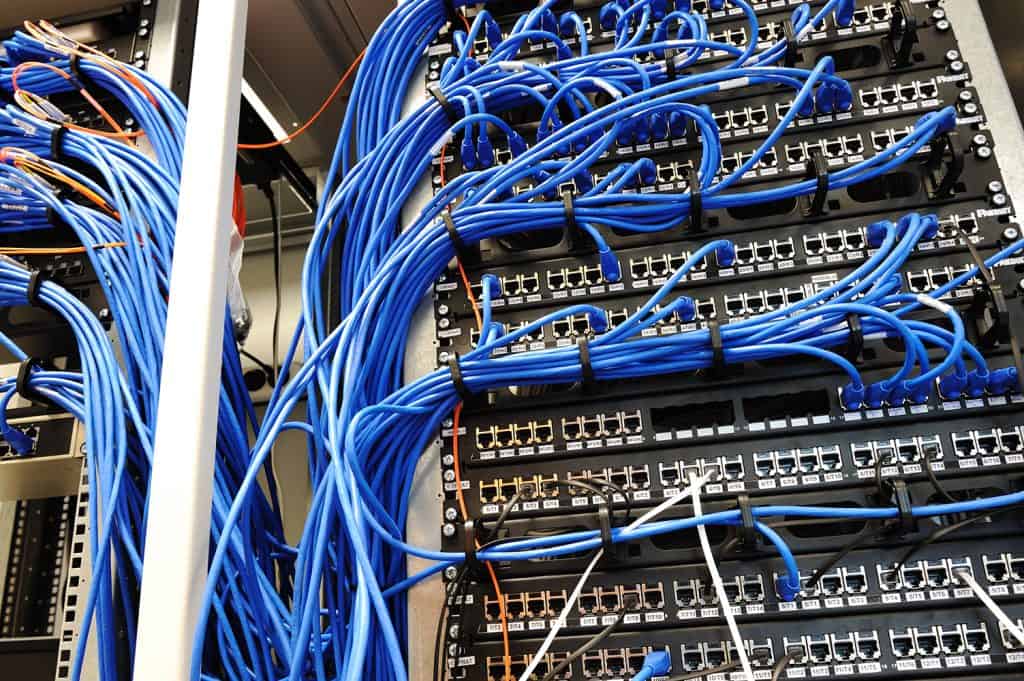As the commercial environment becomes increasingly digital so does the need for businesses to invest in effective, hi-tech network infrastructure. Being connected is at the heart of modern commerce; it’s the foundation of business operations, customer experience, and long-term growth. Whatever the industry: logistics, education, events or retail, having a high capacity internet connection is vital for maximising the efficiency and potential profits of any business in 2025. Just because high speed internet is so important doesn’t mean it’s at the top of every business’ priorities; lots of organizations still run on outdated copper cabling systems, a decision that can come with unexpected costs. What may seem like a money-saving choice in the short term can actually result in significant financial, operational, and competitive disadvantages.
Speed = Productivity
It may seem like a simple equation but with technology at the heart of modern business; necessary for client reach, internal communications, automated manufacture processes and sharing logistics data, having a superfast, secure internet connection is essential to ensure consistent high rates of productivity in any industry. Copper cabling can struggle to keep up with modern demands for high speed internet. Without a solid network infrastructure minor delays can become commonplace, employees will spend more time waiting for files to upload, software to update or establishing connections to virtual meetings. Even small delays can add up, lost hours each week across an entire workforce quickly turn into lost revenue.
Increased Downtime and Maintenance
With modern business operations so dependent on a consistent internet connection, avoiding downtime and maintenance can save hours of lost employee time and help you avoid losses resulting from unexpected pauses in production. Copper cabling is more susceptible to interference, signal degradation, and physical wear and tear. As a result, networks built on copper often require more frequent repairs, demanding more time and attention from in-house IT teams or external communications companies. For industries like finance, healthcare, and e-commerce, even a few minutes of downtime can mean thousands in lost sales or productivity.
Hidden Energy Expenses
Fibre optics cables use modern plastics to transmit data via light whereas more traditional copper networks rely on electrical currents to transfer data. This means that fibre optic networks are much more energy efficient than copper networks; as businesses increasingly rely on the transfer of large amounts of data the extra costs associated with poor quality cabling can increase dramatically. Especially in large networks such as warehouses, factories or hospitals, the increased power consumption created by copper networks can result in a significant increase to day to day expenses. Businesses with a modern mindset, focussed on futureproofing will want a fibre optic network in order to reduce their carbon footprint and ensure the scalability of their network in the coming years.
Limited Scalability
Businesses are generating more data every year, and the use of cloud storage continues to rise, copper cabling struggles to handle the exponential growth in bandwidth demands associated with these trends in commercial networking. Without an overhaul of their systems businesses will have to rely on temporary workarounds or piecemeal upgrades; which at the same time as being less effective than a new fibre optic network can also result in increased running costs, you can end up paying more in the long run to maintain an out of date and ineffective system, getting stuck in an expensive cycle of short term fixes.
Competitive Disadvantages
In the hyper competitive digital marketplace high-speed, reliable connectivity is no longer a luxury, it’s a business necessity. Clients, partners, and employees expect seamless digital experiences and failing to provide them can severely affect your business’ viability in 2025. Companies that don’t succeed in providing smooth and instantaneous client experiences can run the risk of seeming out of date and unreliable, potentially losing business to competitors with more modern systems. Poor or unstable networking solutions can also affect employee satisfaction; resulting in higher levels of frustration amongst staff and even damaging your business’ capacity to retain the highest quality employees.
Security Vulnerabilities
Subject to government legislation regarding information security, businesses that keep clients records digitally must also ensure the security of that data. Operating as a business in the digital commercial environment comes with increased responsibility; you must be able to show that you have taken every caution to protect your clients data. Protecting your own business’ networks is also essential for securing future productivity, the recent Marks and Spencers hack shows just how vital network security is to ensuring a business’ viability. Fibre optic networks are inherently more secure than copper cabling, being extremely difficult to tap without detection. If you are serious about securing your business’ data and communications then upgrading to fibre optics is a huge step towards guaranteeing your and your clients security.
Opportunity Costs
The biggest hidden cost of not upgrading to a fibre optic network for your business may be the potential opportunities missed. Your business’ internet network is a fundamental system upon which the rest of the technology you use is reliant. Without fibre optics you may find it impossible to upgrade machines such as computers, printers or manufacturing appliances. Copper cabling may also limit your ability to take advantage of technological leaps in the digital sphere such as: 5g networking, WiFi 7 technology, Generative AI and cloud computing. Having an out of date of network setup can limit innovation, growth potential and your business’ capacity to stay ahead of market competitors.
Final Thoughts
The choice to delay a fibre optic upgrade often seems like a way to save money, but in reality, it comes with hidden expenses that far outweigh the initial investment. Fiber optics provide faster speeds, greater reliability, better security, and long-term scalability; benefits that directly impact productivity, customer satisfaction, and competitive advantage. If you’re thinking about a full system overhaul then contact Black Glass Comms. Our engineers are experts in the latest networking technology and can help you unlock the potential of your business in the new digital commercial world.


